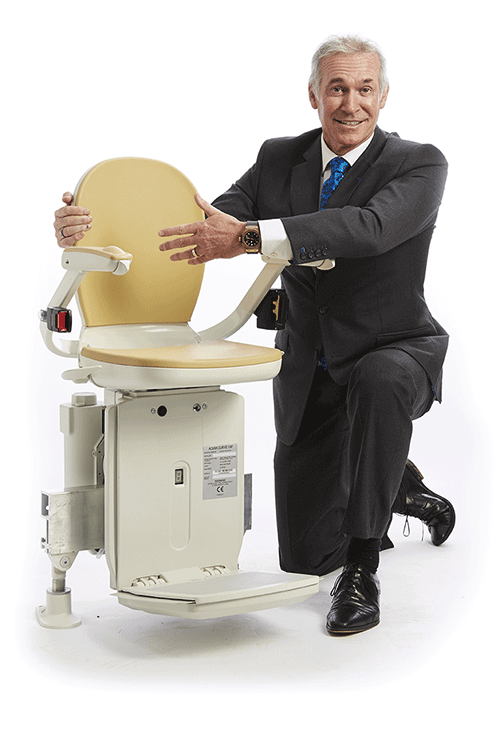Most people see stairs as a simple part of everyday life—a straightforward way to get from one floor to the next. As we age or experience changes in mobility, though, those same steps can begin to feel less like a convenience and more like a challenge.
However, what’s fascinating is that worries about using stairs often surface before any physical issues appear. These concerns stem not only from how we move, but also from how our minds process changes in confidence and perceived risk. This is where psychology comes into play.
Let’s take a closer look at why the challenge of stairs frequently begins in the mind—and how this understanding can help prevent accidents and support confidence at home.
5 Psychological Reasons Why Stairs Start to Feel Unsafe Before They Actually Are
1. The Mental Load of Mobility—Why Stairs Start to Feel Risky
The brain is designed to protect us. Even subtle signs like a moment of unsteadiness or shortness of breath can trigger caution, making stairs feel less safe. These signals often lead to hesitation—even if there’s no history of falls.
Common psychological triggers include:
- A fear of falling, especially after witnessing someone else fall
- Doubts about physical strength or balance
- Nervousness when using stairs alone
This mental load often creates a self-fulfilling cycle: the more we hesitate or avoid stairs, the weaker our mobility becomes.
2. Avoidance Behaviour—When the Mind Changes Your Routine
When stairs start to feel daunting, behaviour tends to change. You might limit trips upstairs, leave items “for later,” or consider sleeping downstairs.
This gradual avoidance leads to a reduction in activity, which causes muscle loss and a greater sense of vulnerability. It’s a cycle that looks like this:
Fear → Avoidance → Muscle Weakness → Increased Risk
Breaking this cycle early is essential for maintaining both confidence and physical ability.
3. The Emotional Impact—When Stairs Start Affecting Your Well-Being
Concerns about stairs aren’t just physical. There’s often an emotional side that’s easy to overlook. Persistent worry about falling or needing help can contribute to:
- Loss of independence
- Feelings of frustration or embarrassment
- Increased stress or even depression
For many people, stairs come to symbolise a loss of freedom. This can make it harder to take action—even when a simple solution could vastly improve quality of life.
4. Stigma Around Support—Why People Delay Help
There remains a stigma around using aids like stairlifts, often linked to a fear of seeming “too old” or dependent. In reality, choosing a mobility solution is a sign of strength. It shows a willingness to act before an accident happens.
Delaying until stairs become genuinely unsafe increases the risk of falls, injury, and hospital visits. Acknowledging the psychological challenge early on encourages timely decisions that support ongoing safety.
5. Practical Support for Mind and Body—How to Build Confidence
The good news is that there are easy, effective ways to manage both mental and physical well-being when stairs become challenging.
Some helpful home mobility solutions include:
- Stairlifts New Zealand: A smooth and safe way to stay mobile without changing homes
- Brighter lighting and secure handrails: Small upgrades that improve confidence immediately
- Gentle balance and strength exercises: Rebuilding trust in your own body
- Talking it through: Open conversations with family, friends, or caregivers reduce stigma and promote action
Confidence Starts in the Mind
Feeling uncertain about stairs often has more to do with psychology than ability. Understanding the mental barriers allows for early intervention, which helps people stay safe, mobile, and independent for longer.
If someone close to you has started avoiding stairs, it may be time to explore solutions. A stairlift installation, paired with other small home adaptations, can make a world of difference.
Contact Acorn Stairlifts New Zealand for Your Free, No-Obligation Quote
If you or a loved one struggle to use the stairs or find yourselves avoiding them altogether, a stairlift will help you rise above these obstacles, granting you full access to the home you love in one seamless, sweeping motion.
Acorn Stairlifts strives to take your life to the next level so that you will never have to sacrifice the things you love because of mobility issues.
Don’t miss out on giving your life a lift—Start enjoying freedom in your home and reclaiming your independence.
Contact Acorn Stairlifts New Zealand today to claim your free, no-obligation quote and learn how you can take the first step towards reaching new heights in your life today.

